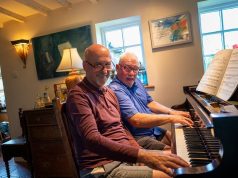Depression scores reduced significantly for single 25-mg dose versus 1-mg dose, but not for single 10-mg dose
THURSDAY, Nov. 3, 2022 (HealthDay News) — A single 25-mg dose of psilocybin reduces depression scores significantly more than a 1-mg dose over a three-week period among individuals with treatment-resistant depression, according to a study published in the Nov. 3 issue of the New England Journal of Medicine.
Guy M. Goodwin, from King’s College London, and colleagues conducted a phase 2 double-blind trial involving adults with treatment-resistant depression randomly assigned to receive a single dose of psilocybin at a dose of 25 mg, 10 mg, or 1 mg (control) with psychological support (79, 75, and 79 participants, respectively).
The researchers found that the mean Montgomery-Åsberg Depression Rating Scale total score was 32 or 33 in each group at baseline. The least-squares mean change from baseline to week 3 was −12.0, −7.9, and −5.4 for 25, 10, and 1 mg, respectively; the difference between the 25- and 1-mg groups was −6.6 (95 percent confidence interval, −10.2 to −2.9; P < 0.001), and the difference between the 10- and 1-mg groups was −2.5 (95 percent confidence interval, −6.2 to 1.2; P = 0.18). The incidences of response and remission at three weeks were generally supportive of the primary results in the 25-mg group, but sustained response at 12 weeks was not. Adverse events, including headache, nausea, and dizziness, occurred in 77 percent of participants. In all dose groups, suicidal ideation or behavior or self-injury occurred.
“Longer and larger trials, including comparison with existing treatments for depression, are required to determine the efficacy and safety of psilocybin for treatment-resistant depression,” the authors write.
Editorial (subscription or payment may be required)
Copyright © 2022 HealthDay. All rights reserved.








